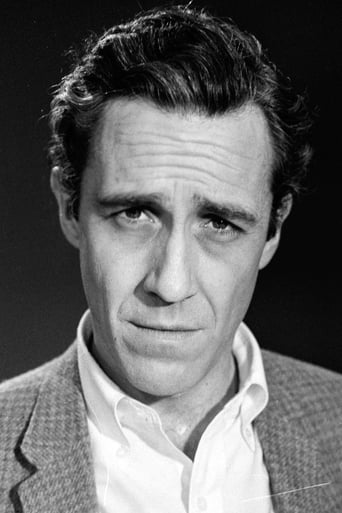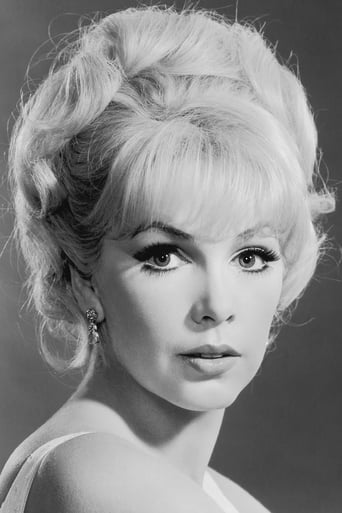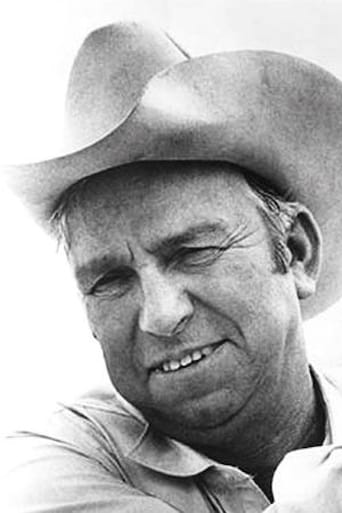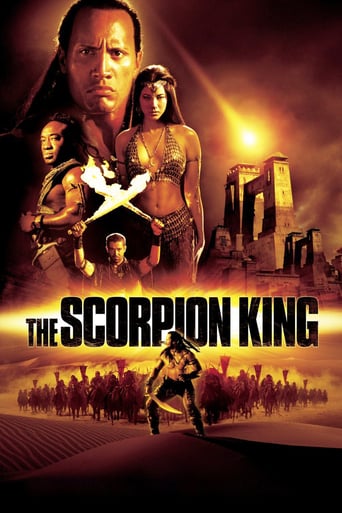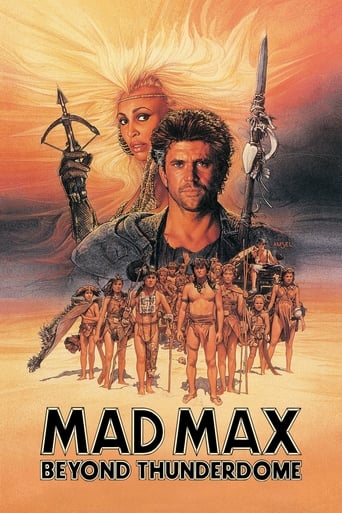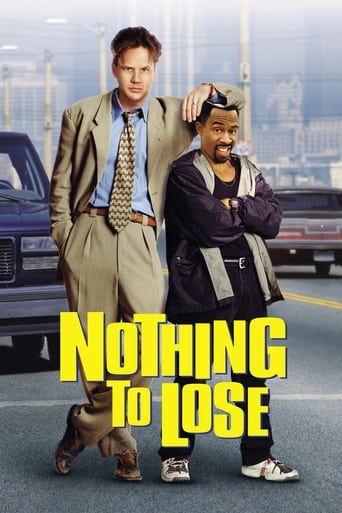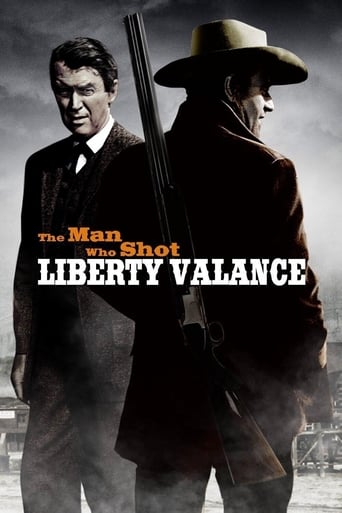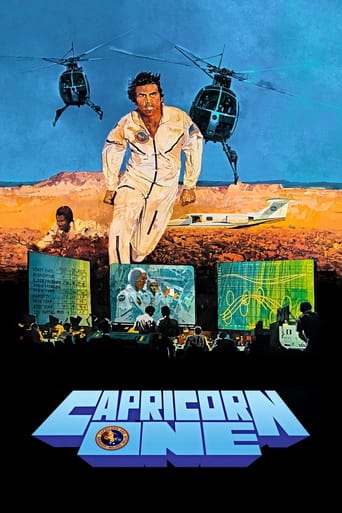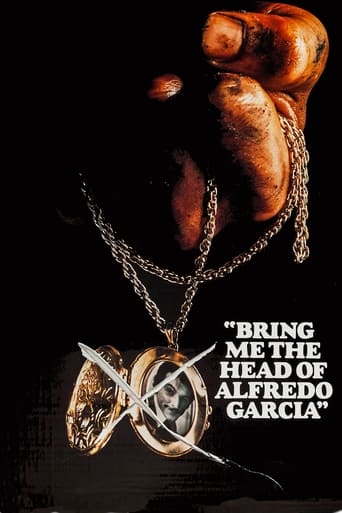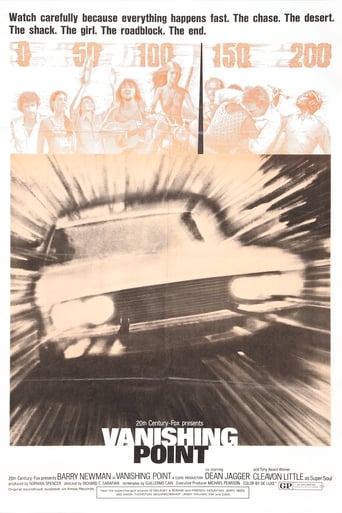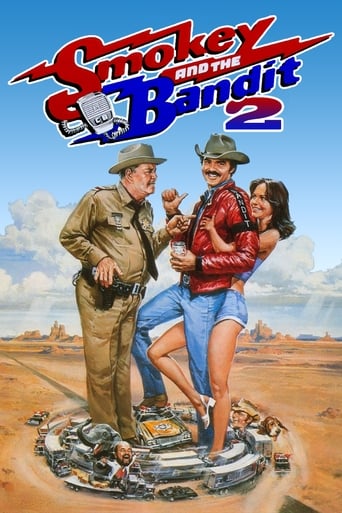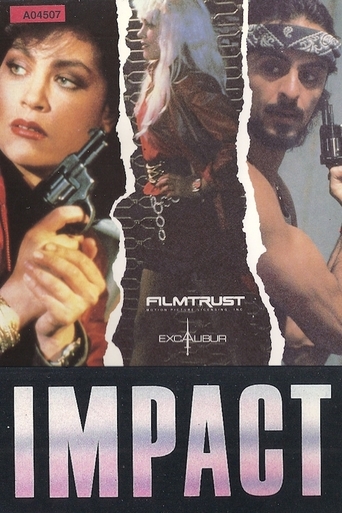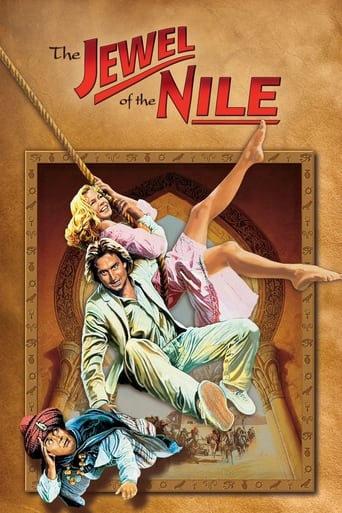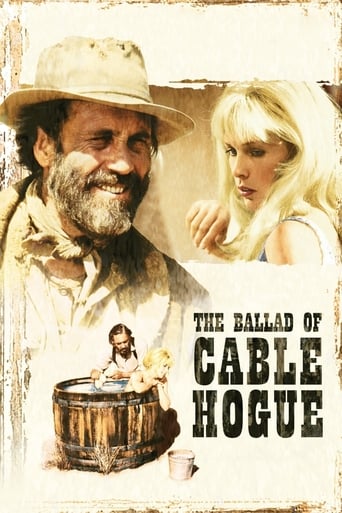
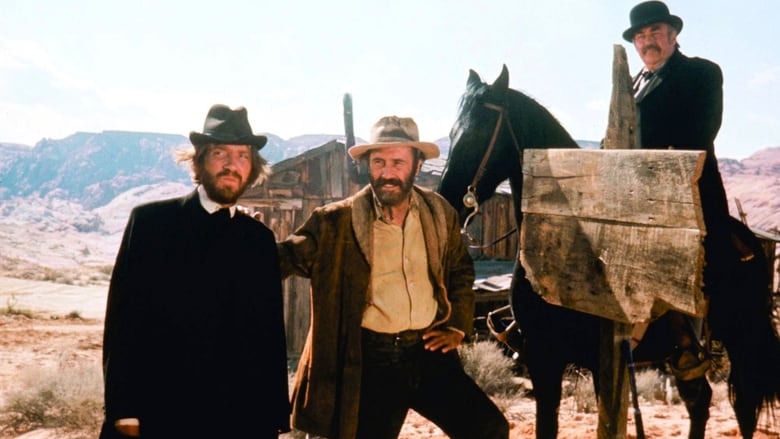
The Ballad of Cable Hogue (1970)
Double-crossed and left without water in the desert, Cable Hogue is saved when he finds a spring. It is in just the right spot for a much needed rest stop on the local stagecoach line, and Hogue uses this to his advantage. He builds a house and makes money off the stagecoach passengers. Hildy, a prostitute from the nearest town, moves in with him. Hogue has everything going his way until the advent of the automobile ends the era of the stagecoach.
Watch Trailer
Cast
Similar titles
Reviews
A brilliant film that helped define a genre
It’s fine. It's literally the definition of a fine movie. You’ve seen it before, you know every beat and outcome before the characters even do. Only question is how much escapism you’re looking for.
It’s sentimental, ridiculously long and only occasionally funny
A terrific literary drama and character piece that shows how the process of creating art can be seen differently by those doing it and those looking at it from the outside.
It is extremely rare for me to watch the same movie over and over, but that's just how much I enjoyed this one! (of course, Encore's line-up give a whole new meaning to Re-runs) I liked it so much, I bought a copy to share.Encore's ad said this was Peckinpaugh's favorite film and that the "studio brass hated it." I'd have to say Peckinpaugh's feelings were right and the studio brass at the time were not too bright.This is a movie that should appeal to both sexes: not a chick-flick or a high drama guy's film. It's difficult to file this movie into any one genre, as it has a slight Western feel with a lighthearted touch of tenderness and it's wonderfully comical. The little 'dance' Cable does after leaving the land office is priceless, LOL! Another rarity for me is to instantly like the music scores from any movie. "Tomorrow Is The Song I Sing" and "Wait For Me, Sunrise" were stuck in my head, even the day after watching the movie the first time. I was happy to find both songs on YouTube and saved them to my play-list. The lyrics from both songs contain meaning that can strike a chord with anyone who has ever faced hard times, looking for a brighter tomorrow. (I expect this would be just about everyone)
I didn't even know this was a Sam Peckinpah movie when I watched it. It has been programmed regularly on Cable TV here in the UK, and I idly switched over to it one Sunday evening. Cowboy movies in 2012? You must be joking! However, I was sufficiently hooked to watch this guy left for dead in the desert. It looks like Jason Robards, so it has to have something going for it. He finds a muddy puddle in the desert. OK, a cliché about this guy building up a prosperous business from scratch. Well, not quite. The clichés never happen. Instead the dialogue is interesting, poetic, never predictable. The character of Cable Hogue has depth and empathy. David Warner hoves into view as a disreputable preacher, dressed in black and thin as a gutter. In the nearest town we meet the hooker, played beautifully by the delectable Stella Stevens. OK, there are elements of slapstick which never quite work, but you feel the movie has something beyond the conventional western. When I discovered it was by Peckinpah, I immediately thought - yes, this is the work of a great director. Not a full-blown symphony, perhaps a string quartet (though by all accounts it cost enough to make). It leaves you with a feeling of satisfaction, tinged with melancholy. That coyote at the end has a collar - perhaps a symbol of the taming of the wilderness.
Good ol' Bloody Sam hid his softer side quite well, too well if you want my opinion, which might explain why "The Ballad of Cable Hogue" sank into oblivion somewhere lost between the popularity of "The Wild Bunch" and "Straw Dogs". How pitiful, "The Ballad of Cable Hogue" would have probably helped to contradict Sam's detractors, but no one remembers it. And this sad reality poetically fits the film Jason Robards plays the prospector Cable Hogue, whose bushy beard, raspy voice and sad looking eyes, embody the colorful heritage of the Old West. His odyssey starts when he's double-crossed by his two associates and left alone and waterless in the desert. Hogue has no other choice than a long walking during which we're transported by the beautiful ballad "Tomorrow is the Song I Sing". Hogue's tomorrow is uncertain, but not hopeless, he regularly addresses God with a touching but never blasphemous complicity and all the determination of a man, who doesn't want to die, like the allegory of the agonizing Old West spirit. But after four exhausting days of walking, Hogue finally gives up and in an ironic twist, his abandon coincides with the providential discovery of a water hole in the middle of nowhere, right between the towns of Deaddog and Gilla. Hogue found something more valuable than gold, a stage stop in the desert.What follows is a tribute to the American Dream : Hogue registers his two acres of precious land, gets a loan from a banker and a succession of very colorful characters assist him. Hogue develops a cordial relationship with two stagecoach drivers and a strange friendship with probably one of the most perversely amusing cinematic preachers you'll ever see. David Warner as Reverend Joshua Sloan will provide some of the film's funniest moments both in the slapstick and the one-liners department. Indeed, Sloan has a very personal way to choose his parishioners, his 'sisters of the Spirit' and purge "the grief" from "their soul" and release their "true spirit" with his very tactful hands. But the heart of the film is the love story between Cable and Hildy, the prostitute, not the archetypal one with the heart of gold. The gold, she's digging it, but not anywhere, in San Francisco where she plans to marry the richest man or the two richest men and become "the ladyest damn lady in town". Stella Stevens is absolutely irresistible in this role, combining an exquisite femininity with a very strong personality.I firmly believe the romantic story is responsible of the comedic tone of the film. It's like Peckinpah decided to loosen up a bit and let all the fun repressed during the making of the more dramatic "Wild Bunch". The movie provides fast motion, subliminal shots of Stella Stevens' beautiful boobs that hardly keep us focused, the slapstick of a good old Benny Hill show and a sort of poetical wisecrack that provides some of the funniest Western lines : "Give me the rifle" "You'll get what's in it" Priceless! I used to believe that this film should be a more popular Western comedy than "Blazzing Saddles" but I finally got the point that the comedy was in fact comic relief as to hide the dramatic aspect of "The Ballad of Cable Hogue" which is, a tragic love story.Hildy has a real fondness on Hogue, and their chemistry is absolutely appealing. The movie is punctuated by many beautiful songs, among them, "Butterfly Morning/ And Wild Morning Afternoons" which offers a tender, delicately handled moment. Robards was robbed an Oscar nom and Stella was stellar, and both exude a mysterious but sincerely endearing love. But there's never a reason in love, it just happens, as says Sloan, there's always one girl who "cuts right straight into you".But Hogue is a practical man, incapable of showing his romantic side every time, haunted by the desire to take his revenge on the guys who betrayed him. Hogue deliberately (or maybe not) ruins what could have been a long-lasting idyll by a remark that hurt Hildy's feelings, telling he didn't charge her the location, because she didn't charge him in bed. At that moment, Hildy's heart is devastated as she realizes that it's time to leave him.The tragedy of "The Ballad of Cable Hogue"'s romance is the impossible love between the hooker who wants to discover San Francisco and the old prospector who hates the town and manages his honest business in the desert. Hogue is someone in the desert, and doesn't have his place in civilization. And the end of the West is incarnated by the automobile era : when the first one appears, Strother Martin's character says he saw one of them ... and so we did, in a movie named "The Wild Bunch". Hogue, like Pyke, embodies the Old West myth and it's no coincidence that he was killed by the ominous arrival of cars. Civilization finally met the Old West.Hogue dies surrounded by all the protagonists of his life, including Hildy, as a rich widow from San Francisco with a dress so green, she's like a beautiful oasis in the desert, indeed, she became the "ladyest damn lady in town". What a poetic ending for a man who would have the honor to hear his own eulogy And what a powerful significance to the film, probably the only one which 'stars characters actors' from Jason Robards, to Stella Stevens, Strother Martin, L.Q Jones, Slim Pickens, the "Ballad of Cable Hogue" is the delightful swan song of an era, a last tribute to a movie genre.And I join myself to honor Cable Hogue, the unsung hero of 'New Hollywood' and 'Cable Hogue' whose tenderness is like the link between the thrills of 'The Wild Bunch' and the passion between 'McCabe & Mrs. Miller', this is the Holy Trinity of the 'New Western' genre. Amen.
This movie was a low point for both Jason Robards and Sam Peckinpah. Major plot points are taken directly from Sergio Leone's masterpiece "Once Upon a Time in the West" (released two years earlier and also featuring Robards): A man finds a watering hole is found in the desert, being the only water for many miles in every direction, he plans to build a 'station' around the hole and to ensure there's a love interest, he falls in love with a prostitute. To this add an intemperate preacher, bad music, silly fast action shots, even sillier T&A shots - and there you go. There is little question why it failed at the box office. The real question is "how did it make it that far?".
